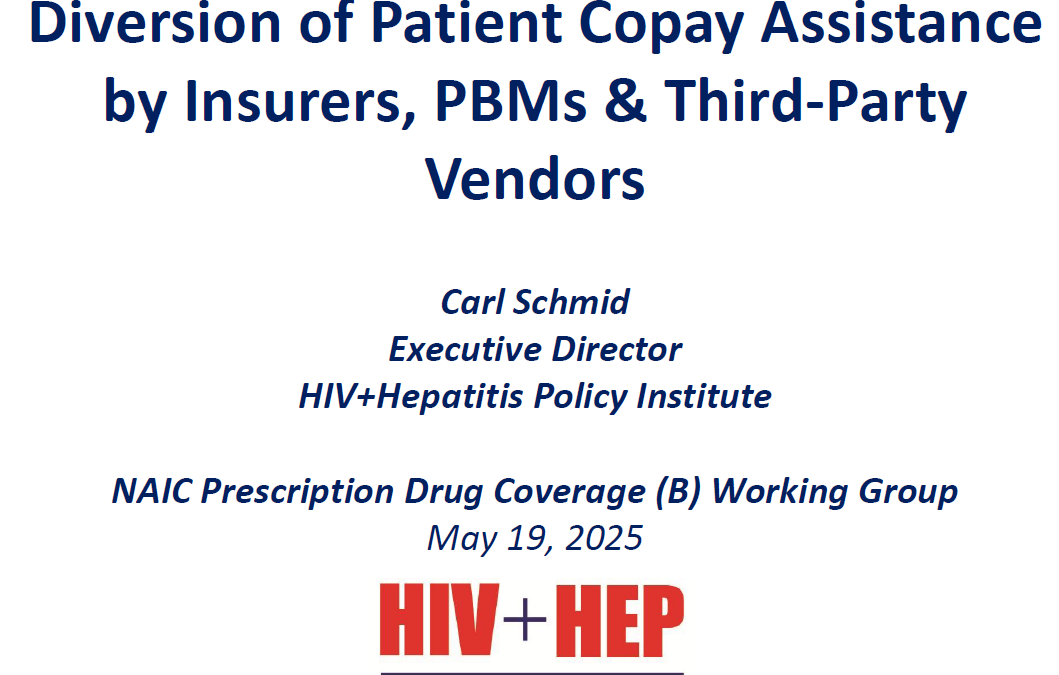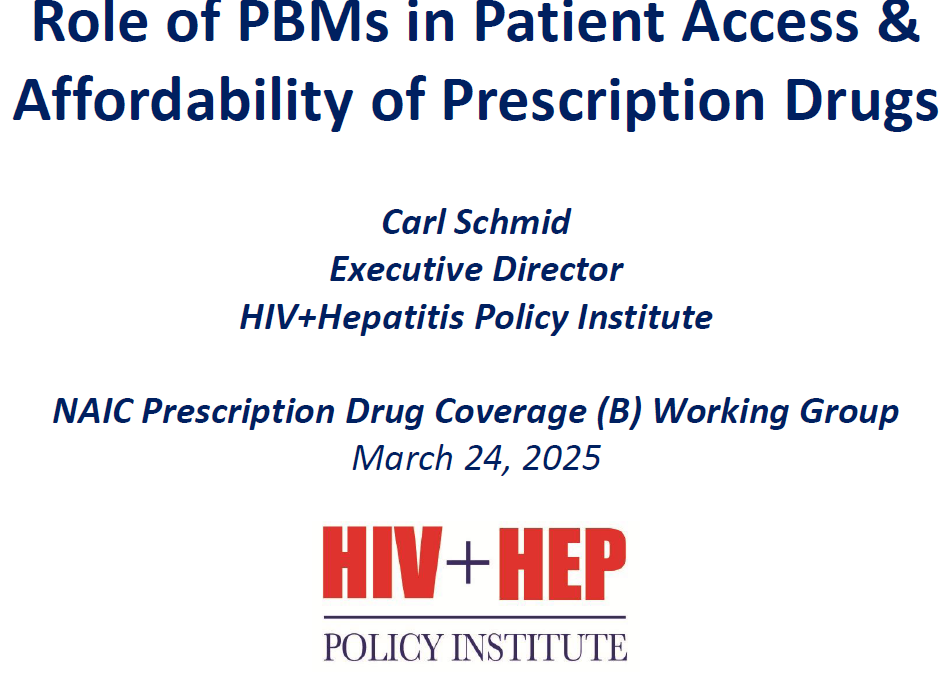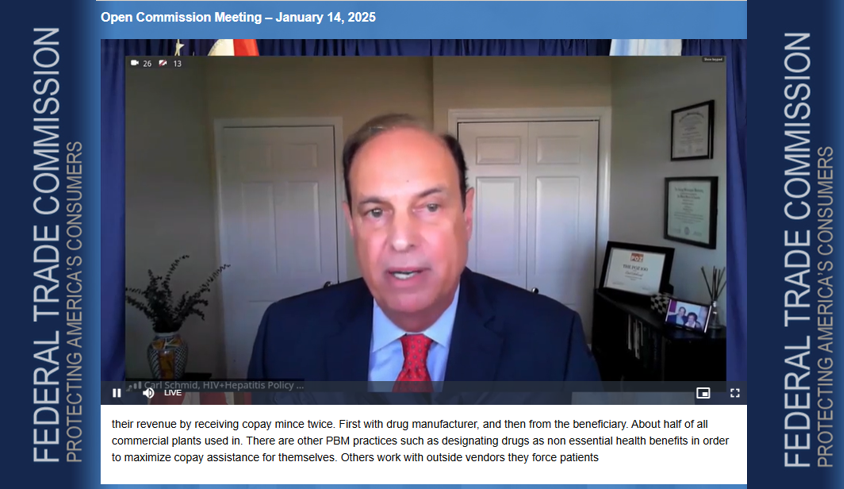Speaking to the NAIC Prescription Drug Working Group, Carl Schmid described how insurers, PBMs, and 3rd party vendors harm patients by not counting manufacturer copay assistance toward out-of-pocket costs as required under the ACA; which states have banned copay accumulators; and efforts to enforce the Court ruling that requires all copay assistance be counted for patients.




